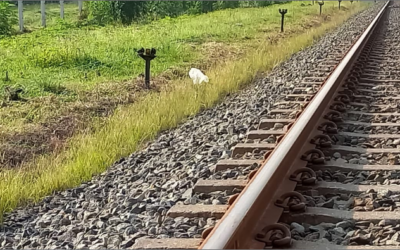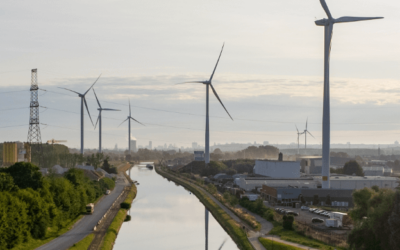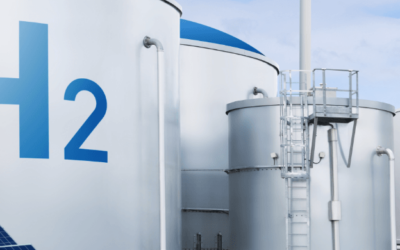Good news for businesses in or serving the construction sector! The SSEB (Subsidieregeling schoon en emissieloos bouwmaterieel, or Clean and Emission-free Construction Equipment Grant Scheme) announced last year has just been launched. The originally planned opening date of September 2021 proved not to be feasible, but the scheme is now open for applications since 9 May.
Why an SSEB?
The Council of State’s ruling on nitrogen in 2019 meant that many construction projects came to a halt or were delayed, as construction companies were no longer allowed to freely build in the vicinity of Natura 2000 areas (protected natural areas). A solution came in the form of a partial exemption from the Natura 2000 permit requirement for temporary nitrogen emissions arising from construction activities. In order to implement this exemption, the government established a comprehensive package of measures to increase the sustainability of the construction sector. An important part of this is tackling the emissions produced by mobile equipment and construction vehicles by means of incentive measures, such as the SSEB. Through this approach, the Cabinet hopes to reduce emissions by accelerating the increase in the number of clean and emission-free construction machines.
Reducing nitrogen emissions
The goal of the SSEB is the reduction of nitrogen emissions by construction equipment (construction equipment, auxiliary equipment, construction vehicles and seagoing construction vessels), in accordance with the Climate Agreement and Clean Air Agreement objectives. It does so by means of three grant components:
- an innovation grant for the continued development of emission-free technologies (including solutions for on-site charging), so that companies can put them into practice during the course of the scheme
- an acquisition grant for new emission-free construction machines for use in the construction industry, including the conversion of new machines before delivery to the user
- a retrofitting grant for converting existing construction equipment into cleaner or emission-free machines by the installation of an NOx after-treatment system.
Who can apply for an SSEB Innovation grant?
This article focuses on the innovation grant. The following are the target groups for which the SSEB Innovation grant is intended:
- an enterprise established in the Netherlands, or
- a partnership between enterprises as described above
- a partnership between enterprises as described above and a non-government organisation or a publicly funded research organisation.
Innovation grant amount and budgets
There are two components to the innovation grant:
- experimental development (contributing to accelerating the development of emission-free construction machines in the pre-commercial phase, rolling out or using infrastructure for alternative energy carriers for emission-free construction machines or charging systems for charging or discharging the batteries of emission-free construction machines, excluding energy generation for charging): the grant amounts to 25% of the eligible costs up to a maximum of 1 million euros. The available budget in 2022 is 9 million euros.
- feasibility study (investigates the feasibility of an experimental development project): the grant amounts to 50% of the eligible costs up to a maximum of 50,000 euros. The available budget in 2022 is 1 million euros.
The percentages specified above can increase by 10% in the event of effective cooperation, by 15% in the event of wide dissemination of project results, and by a bonus of 10% for SMEs.
Application rounds
Parties can apply for an SSEB Innovation grant from the RVO (Rijksdienst voor Ondernemend Nederland, or the Netherlands Enterprise Agency):
- for the feasibility study: from 9 May to 30 December 2022. Evaluation takes place in the order of receipt, or in other words, first come, first served!
- for experimental development: from 31 May to 31 August 2022.
Experimental development: impact and quality are decisive
When it comes to experimental development, the assessment is carried out according to the tender system. That is, the RVO ranks the projects and awards grants to the projects assessed as the best, based on three assessment criteria. Impact and quality are decisive in this respect:
- subject (maximum of 20 points):
- technical development
- practical experience
- impact (maximum of 50 points):
- NOx reduction
- follow-up potential
- knowledge transfer
- quality (maximum of 30 points):
- the quality of the objectives
- speed of the project
- project management
- budget and cost-effectiveness
Would you like to apply for an SSEB grant?
If you are developing new emission-free technologies or construction machines (including on-site charging solutions), then you can make use of the SSEB. Don’t delay, get started today! Feel free to contact the experts at EGEN by calling us on 088-838 13 81 or sending us an e-mail.


